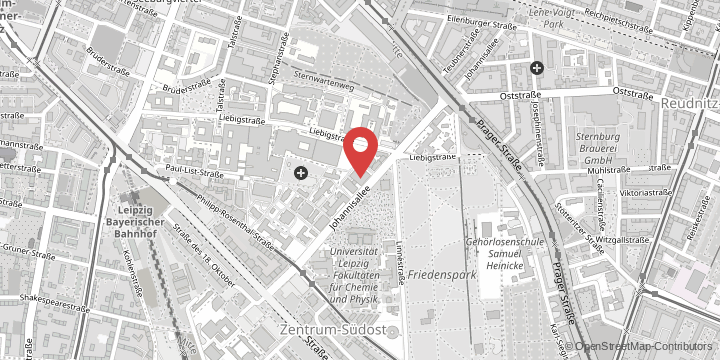The Leibniz ScienceCampi promote thematically focused cooperation between Leibniz institutions and universities within the framework of regional partnerships. The main objective is to establish networks that support the further development of the respective research fields and strengthen the scientific environment. Two Leibniz ScienceCampi are being funded at Leipzig University: the Leibniz ScienceCampi “Smoke and Bioaerosols in Climate Change” and “Eastern Europe – Global Area”.
Smoke and Bioaerosols in Climate Change
Over the next four years, the Leibniz ScienceCampus “Smoke and Bioaerosols in Climate Change” (BioSmoke) will investigate the links between forest fires and climate change. Research into the processes in the interlinked system of atmosphere, climate and vegetation requires expertise from different scientific disciplines. BioSmoke therefore combines the outstanding expertise of atmospheric and biodiversity research at Leipzig University, aerosol, cloud and atmospheric processes at TROPOS, biomass combustion analysis at the DBFZ, and water and energy cycles at the UFZ to investigate the factors influencing and the effects of aerosol particle release from vegetation. The planned projects include laboratory experiments on combustion, field measurements of aerosol properties in connection with vegetation fires, as well as remote sensing and modelling of particle emissions, their transport and atmospheric effects. The network can also draw on extensive data from measurement campaigns conducted by the German research aircraft HALO.
Four research institutions in Leipzig are involved in BioSmoke:
- Leipzig University
- Leibniz Institute for Tropospheric Research (TROPOS)
- Helmholtz Centre for Environmental Research (UFZ)
- German Biomass Research Centre (DBFZ).
The spokesperson for BioSmoke is Professor Ina Tegen, Director of the Leibniz Institute for Tropospheric Research and Professor of Modelling of Atmospheric Processes at Leipzig University.
Eastern Europe – Global Area (EEGA)
The Leibniz ScienceCampus “Eastern Europe – Global Area” (EEGA) is a vibrant research network that sheds new light on the role of Eastern Europe in global developments – both today and in the past. It brings together researchers from different disciplines and promotes exchanges between universities, research institutions and society. EEGA is particularly committed to promoting early career researchers and to sharing knowledge with other Eastern European stakeholders in the region.
EEGA aims to sharpen the view of Eastern Europe in a global context and promotes innovative research projects that think beyond the region. Particular attention is paid to the role of Eastern Europe in global networks and the importance of cultures of remembrance.
Drawing on interdisciplinary expertise from the Leipzig-Jena-Halle scientific region in Central Germany, the Campus explores issues such as migration and mobility, economic and political strategies, cultural and intellectual identities, and the integration of Eastern Europe in an ever-changing global arena. This not only creates a deeper understanding of the region, but also promotes the transfer of knowledge to society.
Eight institutions are currently cooperating in the EEGA ScienceCampus:
- Leipzig University
- Martin Luther University Halle-Wittenberg
- Friedrich Schiller University Jena
- Leibniz Institute for Regional Geography (IfL), Leipzig
- Leibniz Institute of Agricultural Development in Transition Economies (IAMO), Halle (Saale)
- Leibniz Institute for the History and Culture of Eastern Europe (GWZO), Leipzig
- Leibniz Institute for Jewish History and Culture – Simon Dubnow (DI), Leipzig
- Max Planck Institute for Social Anthropology, Halle (Saale).
EEGA’s spokesperson is Professor Judith Miggelbrink, Director of the Leibniz Institute for Regional Geography and Professor of Regional Geography at Leipzig University. Its co-spokesperson is Professor Matthias Middell, Global and Area Studies Institute at Leipzig University and Director of the Research Centre Global Dynamics (ReCentGlobe).






























































